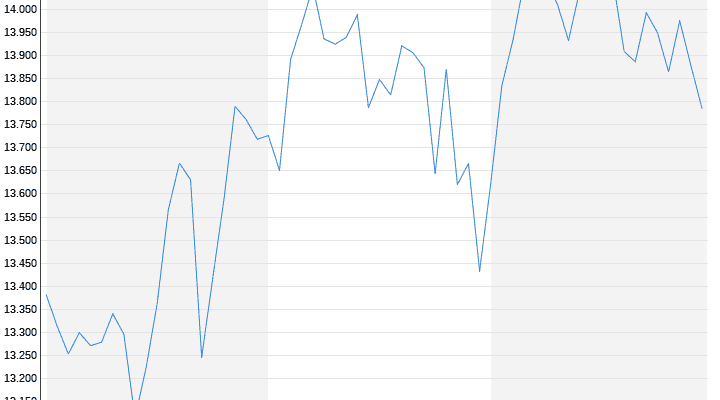Saturday, February 27, 2021
Boom in shareholder numbers
How faithful are newcomers to their stocks?
In the crisis year 2020 of all things, many Germans are drawn to the stock exchange. Increasing prices also attract many newcomers to the parquet. The stock markets are still booming. But with falling prices, the new love could end again very quickly.
In the Corona crisis, many Germans discovered the stock exchange for themselves. 12.35 million shareholders are the highest level in almost 20 years. But how permanent is the boom of 2020? Will the Germans, who are considered to be more shy about the stock market, jump off again at the next crash? The Deutsches Aktieninstitut (DAI) is hopeful that younger people in particular are increasingly using shares and funds for retirement provision.
Compared to the previous year, the number of those in Germany who own shares in companies and / or equity funds rose by almost 2.7 million. However, 500,000 of these are due to a change in the survey method: For the first time, the statistics collected since 1997 include foreign shareholders residing in Germany.
But even on a comparable basis, the total number is the highest since the record year 2001 with almost 12.9 million shareholders at the time. "Last year's boom among shareholders is a good sign for the share culture in Germany," said the head of the share institute, Christine Bortenlänger, in Frankfurt. "Many of the people who invested in stocks in 2020 chose to save in equity funds and equity ETFs. They want to stick with them for the long term." The Bundesbank recently stated that the involvement of private households in the capital market had recently experienced "a rapid upswing".
Many had more time and more money in 2020
The BVI fund association is also rethinking after years of low interest rates. According to BVI information, investors invested a net 20.9 billion euros in equity funds alone last year, more than four times as much as a year earlier (4.5 billion euros). "Apparently, many Germans have used the Corona crisis to get into securities investments for the first time, after a long period of time, or more intensely," said Union Investment Manager Alexander Schindler earlier this week. "Since savings accounts are no longer generating any income, we are seeing increasing interest among savers in investing in funds. The low interest rates are doing what years of financial education or promoting the equity culture have failed." The pandemic did the rest, according to the analysis of the Aktieninstitut: "Many savers simply had more time and more money in 2020."
People saved a lot of money because vacations were canceled, shopping trips and restaurant visits were temporarily impossible or only possible to a limited extent. According to calculations by the Federal Statistical Office, an average of 16 euros out of 100 euros was put aside. According to the stock institute, several investors used the time gained to deal with their finances: "Coupled with the falling stock exchange prices in the spring, many apparently used this as an opportunity to enter the stock market."
The group of under-30s in particular was therefore very active on the stock exchange. Almost 600,000 young adults ventured out onto the floor – an increase of almost 70 percent compared to the previous year and thus by far the largest increase of all age groups examined in the study by the Aktieninstitut. This trend is favored by the fact that for many providers the investment in stocks is only a few clicks away on the smartphone app.
What happens if prices fall again?
According to the latest figures, around every sixth person in Germany aged 14 and over has stocks, equity funds or exchange-traded index funds (ETFs) in their custody account. For most savers in this country, however, this is still a gray theory. They either never invested in stocks or funds, or they turned their backs on the stock market in horror after the dot.com bubble burst. According to surveys, the fear of losing money because you get in at the wrong time or bet on the wrong horse is widespread – even if the stock institute regularly calculates in the "Dax yield triangle" that long-term savings in stocks have been in the past 50 years usually paid off.
In 2001, the shareholder quota in Germany was 20 percent – thanks to the Telekom shares advertised as "people's shares" and the stock market hype surrounding the new economy. At 17.5 percent again, the share of shareholders in Europe's largest economy is still rather low compared to other industrialized countries. In the USA, for example, the state is promoting old-age provision more through the capital market. In Germany, many investors took advantage of the fall in the share price in March – the leading index Dax plummeted from almost 13,800 points to 8255 points – to get on the stock market or to increase their share holdings.
The stock markets are currently booming again, and analysts believe that the Dax will achieve a record of 15,000 points by the end of the current year. But what happens if prices fall again? Will the "new love story" of the Germans end with the stock exchange, which the Aktieninstitut reported in its latest study? After all, the topic of money is "emotionally charged", admit the Frankfurt experts. "That is why the anger about losses usually has a much stronger effect than the joy about profits." As a precaution, the Aktieninstitut warns: "Newcomers to the stock market must not let themselves be disturbed by brief price setbacks (…)." Anyone who saves long-term, broadly diversified and regularly in stocks or equity funds can "sit out these temporary phases".
. (tagsToTranslate) economy (t) stock prices (t) stock trading (t) ETF (t) investors and companies
